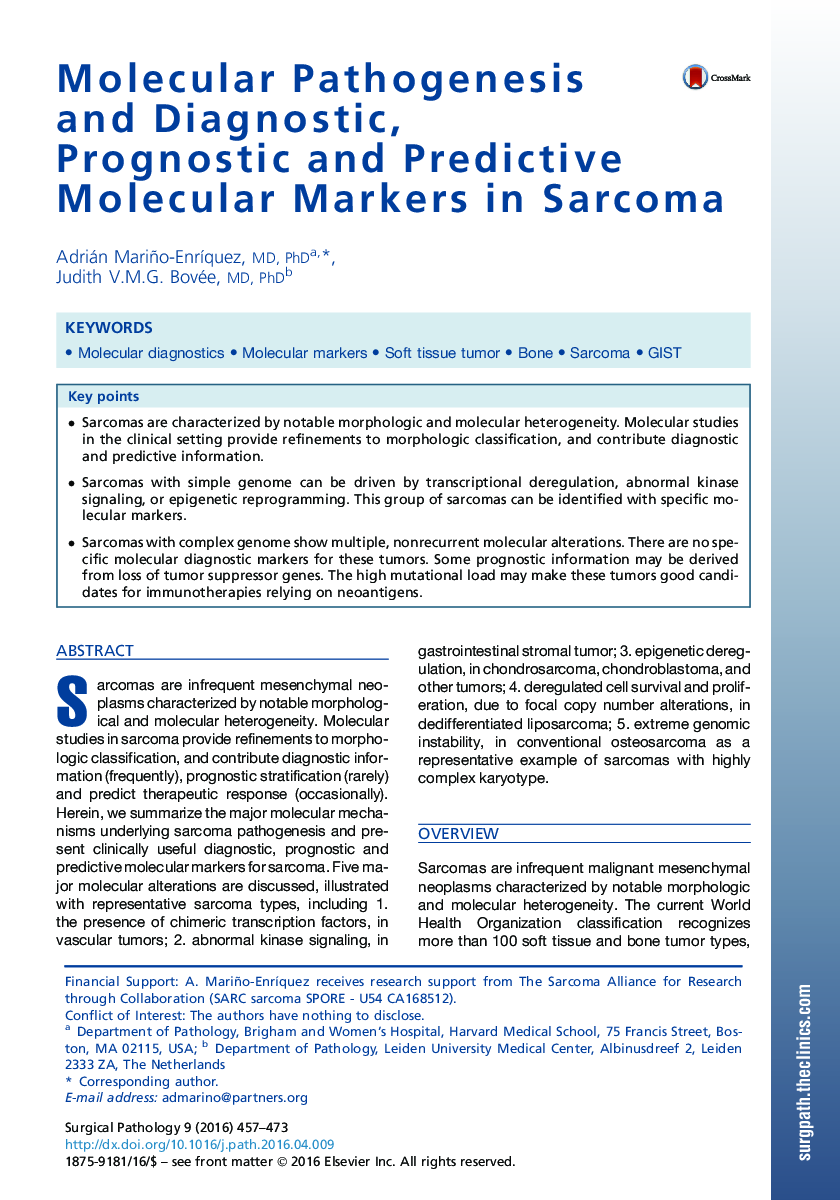| Article ID | Journal | Published Year | Pages | File Type |
|---|---|---|---|---|
| 3334294 | Surgical Pathology Clinics | 2016 | 17 Pages |
Sarcomas are infrequent mesenchymal neoplasms characterized by notable morphological and molecular heterogeneity. Molecular studies in sarcoma provide refinements to morphologic classification, and contribute diagnostic information (frequently), prognostic stratification (rarely) and predict therapeutic response (occasionally). Herein, we summarize the major molecular mechanisms underlying sarcoma pathogenesis and present clinically useful diagnostic, prognostic and predictive molecular markers for sarcoma. Five major molecular alterations are discussed, illustrated with representative sarcoma types, including 1. the presence of chimeric transcription factors, in vascular tumors; 2. abnormal kinase signaling, in gastrointestinal stromal tumor; 3. epigenetic deregulation, in chondrosarcoma, chondroblastoma, and other tumors; 4. deregulated cell survival and proliferation, due to focal copy number alterations, in dedifferentiated liposarcoma; 5. extreme genomic instability, in conventional osteosarcoma as a representative example of sarcomas with highly complex karyotype.
